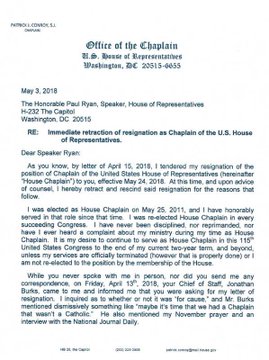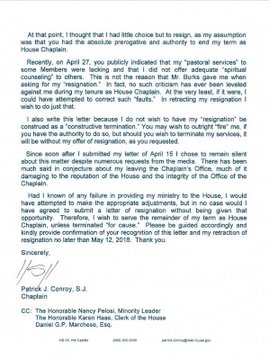By Jacqueline Charles, Miami Herald (TNS)
Even before one of them put a shotgun to her throat screaming “Money, money!” Sister Marie de la Croix knew what the intruders wanted after being awakened by rocks raining down on the house next door.
The noise was soon followed by gunshots, and then the cries for help of Father Louis Marie.
The home invasion robbery last month in the isolated hillside community of Aux Cadets in the mountains above Port-au-Prince, Haiti, was the latest incident in a puzzling crime spree.
Since November, at least 27 religious communities, mostly nuns, have been the target of 39 attacks in six regional departments, Roman Catholic Church officials say. Convents have been ransacked, nuns beaten, and in the case of Father Marie, shot four times and left for dead.
So far, no one has been killed, although a traumatized nun died in surgery and another slipped into a coma after attacks. Officials declined to confirm reports that several have been raped.
“Some communities have been hit three, four times,” said Brother Herve Zamor, head of the Conference Haitienne des Religieuses (CHR), which oversees Catholic groups operating in Haiti. “These are communities that don’t have money. There has to be another reason. We believe there is a hidden motivation behind it. What? I don’t know.”
The brazen criminal acts come as Haiti sees a huge drop in kidnappings but a disturbing spike in gun- and gang-related violence. Statistics from the Haiti National Police, the United Nations, and the National Episcopal Justice and Peace Commission show that since the summer, the security climate has been worsening, with police struggling to control violence.
The crime is mostly concentrated in metropolitan Port-au-Prince, which accounts for nearly 80 percent of Haiti’s homicides. And while Haiti still boasts one of the lowest homicide rates in the region, with 10.5 people killed per 100,000 inhabitants, according to the U.N., there is deep fear of it all unraveling as the country prepares to shoulder most of the responsibility in organizing three elections in the coming months.
The political uncertainty, coupled with the drawdown of half of the country’s U.N. peacekeeping force and the continued challenges by police in deterring crime, make the religious attacks even more troubling.
“Every time we have elections in Haiti, there is always a wave of insecurity,” Zamor said. “There are always people looking to destabilize the situation.”
Politically motivated violence against the Catholic Church isn’t unheard of in Haiti, where the church has long played a leadership role in mediating the political crisis. But never before have nuns been “systematically attacked,” observers note.
“It’s really hard to believe and I can’t figure out what’s really going on,” said William O’Neil, a longtime human rights lawyer who has been involved with Haiti. “It seems like it’s something more than pure robbery. But what and who is behind it, who knows?”
Last week, police announced they had dismantled the gang responsible, arrested five suspects and had a manhunt for ten others.
Police spokesman Gary Desrosiers said the gang targeted the nuns because “for them, they only deal with their Bibles, their rosaries,” and won’t fight back.
“All sectors [of society] have condemned this,” Desrosiers said, “and we the police, didn’t remain passive.”
Desrosiers’ words should have brought a sense of comfort. But doubts and concerns linger, underscoring even the clergy’s lack of faith in Haiti’s police and justice systems.
“We are not satisfied. We expect more than one hundred people to be arrested,” said Monsignor Patrick Aris, chancellor of the Archdiocese of Port-au-Prince. “We are very far from dismantling these gangs. The police, the government have to do more.”
Aris said the attacks started in November but it wasn’t until January that they began noticing a pattern.
“Every time they attacked us, we called the police. They never came on time,” Aris said. “They always had a reason — sometimes they didn’t have equipment, they don’t have a car.”
De la Croix and Sister Marie de l’Evangile were sleeping when the bandits arrived on foot at 12:30 a.m. on March ten. Hearing the noise, de la Croix called police. The inspector said he would send someone right away.
Moments later, the bandits were staring into de la Croix’s living room. After shooting Father Marie in his shoulders and hands and smashing him in the head with a rock, they broke through her front door.
“Give me money, money,” de la Croix said one of the men screamed. She handed him $100, but he wasn’t satisfied.
“Are you crazy? We want $15,000,” he screamed.
“I have nothing else,” de la Croix responded.
L’Evangile, who tried to help Marie, was also hit in the head with a rock. Soon, people from the community came, scaring the bandits away, said de la Croix, who is with the Fraternite Notre Dame order.
Afraid to drive down the mountain after the robbers fled with a cellphone, camera, laptop, $310, and their religious rings, de la Croix waited for police. They arrived three hours after her call.
“They said they got lost,” she said.
Marie was initially treated at a U.N. hospital and transported to the United States. Since the attack, neither woman has slept in the community where they provide health services for 2,000 families.
“We don’t know what we are going to do,” de la Croix said. “It’s really painful. So many people rely on us, especially at night when the women are giving birth and we are not there to help.”
Jocelyne Colas, the executive director for the National Episcopal Justice and Peace Commission, said the weakness of Haiti’s police force makes it difficult to have confidence that they have caught the culprits.
Colas’ criticism about the police aren’t new. In a 2014 report, Human Rights Watch said despite the priority given to police reform, “the weak capacity of the Haitian National Police (HNP) contributes to overall insecurity in the country.”
“There is negligence by the authorities and a lack of political will to take responsibility to apply the law and prevent violence,” said Colas, who called for a disarmament campaign after the group’s latest crime report showed increasing violence.
“The attacks against the religious communities, for us, simply shows the lack of capacity of the authorities, the lack of investigation and prevention. Even when they succeed in arresting someone, there are no guarantees they will be judged,” Colas said.
Zamor echoes her sentiment.
“The justice system in Haiti is weak,” he said. “What is to say they won’t release [those arrested] and then they return to persecute the religious groups? They only got five of them; ten are still at large. The danger is still there and at any moment they could return.”
Zamor said church officials asked police to increase patrols in areas where communities are most vulnerable. Police instead proposed that they hire private security, a proposition that neither the Church nor the poor communities they serve can afford.
“We want the police to assume its responsibilities,” he said. “It is frustrating when the person who is supposed to give you security isn’t there and then when he arrives, he never does so on time.”
Zamor said the Catholic church has no intention of pulling out missions, which are working in some of the remote reaches of the country operating schools, orphanages, and health clinics. There is, however, serious consideration about cutting back those services to help protect the nuns.
Photo: Vision Vocation Guide via Flickr






